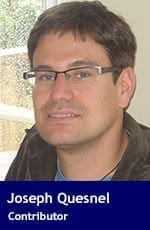 Indigenous communities across Canada should learn from an Alberta First Nation that’s establishing a private health clinic to provide services that will reduce the pressure on the public system.
Indigenous communities across Canada should learn from an Alberta First Nation that’s establishing a private health clinic to provide services that will reduce the pressure on the public system.
The Alberta government recently approved a plan by the Enoch Cree Nation, close to Edmonton, to build a private clinic specializing in hip and knee surgeries. This clinic will partner the First Nation with companies that will construct the building and provide the equipment. As with other public clinics, the surgeries completed in this clinic will be, in most cases, covered by public funds.
Before readers become upset by this proposal, private clinics are quite common across the country. These private clinics are, in fact, needed to reduce the backlogs that exist in many surgical procedures. Like other private clinics, the Enoch clinic will be tightly controlled by the provincial health department.
| RELATED CONTENT |
| First Nations patients triaged as less urgent than others in Alberta: study By Gillian Rutherford |
| Strong link between culture and health for indigenous populations By Jon McGavock |
| Urgent investment in Indigenous healthcare needed By Brian Postl and Pierre-Gerlier Forest |
As often happens in our country, any discussion of private healthcare gets short-circuited by baseless claims of “American-style” care. In fact, the evidence suggests that the U.S. was better able to respond to its healthcare needs during the COVID-19 pandemic than Canada was. Unfortunately, the mainstream media in Canada missed this evidence because it was, so it seems, too busy promoting the government narrative and demonizing Canadians who were unvaccinated.
During the pandemic, we clearly learned that Canada’s healthcare system isn’t prepared for substantial surges in demand. The surge from the pandemic led to tens of thousands of postponed surgeries. Some patients, in fact, died while waiting in a queue. The increased demand also affected healthcare workers, who were under considerable stress. Medical professionals were burning out at a high rate, and many left the profession.
Even so, one hopes that the Enoch experience will lead to the opening of more private healthcare clinics on First Nations. Indeed, some of Canada’s other Indigenous communities could build private clinics, providing their communities with increased revenue and high-skilled jobs.
Because the federal and provincial governments will be involved, the Enoch First Nation will pioneer the way to solving some significant jurisdictional difficulties. The federal government could provide substantial and needed support for First Nations which would like to help deliver healthcare services to Canadians.
Enoch Cree Nation isn’t the only First Nation to be involved in delivering healthcare. In 2012, the Westbank First Nation in B.C. announced a plan to build a for-profit hospital targeting medical tourists and Canadians who needed extended care.
At the time, some constitutional experts thought this project would violate the Canada Health Act. The Westbank First Nation claimed that, as a self-governing community, it wasn’t constrained by the act.
In the end, the First Nation abandoned the proposal.
Nevertheless, the decision by the Enoch First Nation may set a precedent by showing other First Nations how to build healthcare clinics. Of course, clinics would promote the establishment of other services, resulting in much-needed economic and employment prospects for Indigenous people.
Joseph Quesnel is a senior research associate with the Frontier Centre for Public Policy.
Joseph is a Troy Media contributor. For interview requests, click here.
The opinions expressed by our columnists and contributors are theirs alone and do not inherently or expressly reflect the views of our publication.
© Troy Media
Troy Media is an editorial content provider to media outlets and its own hosted community news outlets across Canada.


